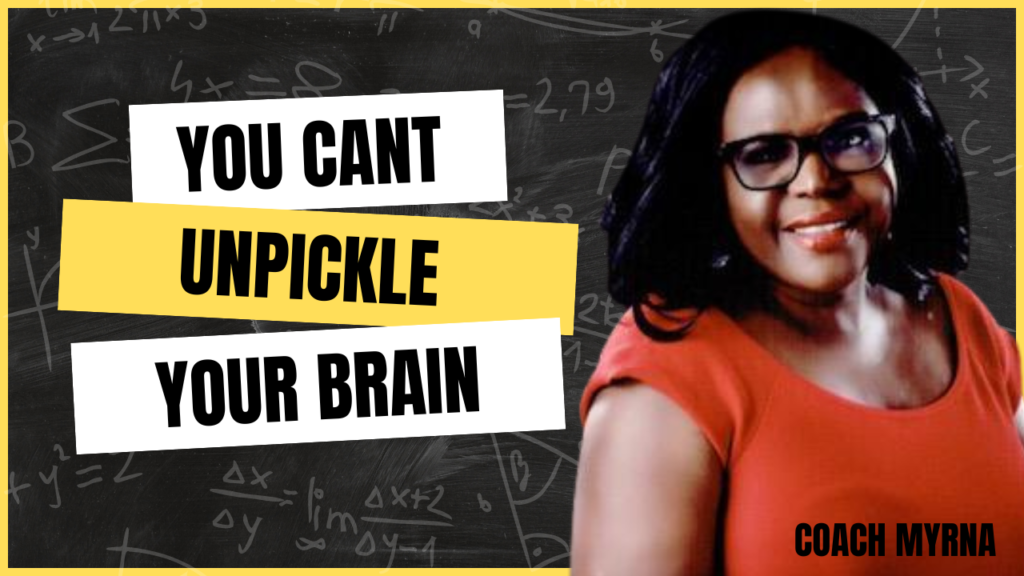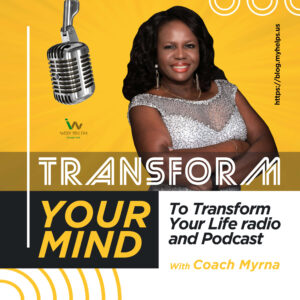Understanding the addicted brain, addiction fundamentally alters the brain. In this episode of “Transform Your Mind to Transform Your Life” with Coach Myrna. Discover the concept of a ‘pickled brain’ and understand how addictive behaviors change brain chemistry, leading to persistent cravings and compulsions. Coach Myrna discusses Neuroplasticity, outlining steps to build new neural pathways for recovery and sustainable change. She also delves into the role of therapy and mindfulness in rebuilding decision-making capabilities. Gain insights into creating a compassionate framework for managing the addictef brain and supporting lifelong recovery.
Download the podcast Here:
Introduction to the Addicted Brain
In the realm of personal development, there’s a captivating concept: once the brain is transformed, either by the expansion of knowledge or through addiction, it cannot revert to its previous state. This principle, often encapsulated in the phrase “You can’t unpickle a pickle,” serves as a poignant reminder of the lasting impacts of addiction on the brain. In this podcast, we delve into how addictive behaviors irreversibly alter brain chemistry, this the concept of the pickled brain. Explore the challenges of recovery, and highlight actionable strategies for harnessing the brain’s adaptive capabilities to create healthier neural pathways.
Key Takeaways
Addiction irreversibly alters brain chemistry and function, making recovery complex but not impossible.
Neuroplasticity offers hope by allowing the brain to form new connections and support recovery.
Long-term recovery involves lifestyle changes, support systems, and therapies to manage cravings and build resilience.
How Addiction Permanently Alters the Pickled Brain
The first theme observes addiction as a brain-altering process that transforms its basic chemical and functional framework. As expressed in the transcript, “our brains undergo real lasting changes.” The concept of a “pickled brain” serves as an analogy for understanding how substances and addictive behaviors rewire neural pathways, shifting the brain from its natural state to a new, dependency-driven configuration.
- Reward System Rewiring
Addiction fundamentally hijacks the brain’s reward circuits. The brain, originally designed to reward survival-promoting activities like eating and social bonding with dopamine, becomes subjugated to the effects of addictive substances. As the speaker described, “these activities release dopamine, the feel-good chemical,” yet drugs create “dopamine at unnatural levels.” This leads to a dopamine overload, prompting the brain to repeatedly seek such substances, thus fostering dependency.
Dopamine overload, or having too much dopamine in the brain, can cause a number of physical and mental health issues.
- Muscle cramps, spasms, or stiffness
- Digestion problems, such as constipation or reflux
- Pneumonia
- Trouble sleeping
- Moving or speaking more slowly than usual
2. Tolerance and Dependence
With persistent exposure, the brain builds tolerance — necessitating an increased substance quantity to achieve the same effects — and consequently, dependence. Myrna Young highlights this through a personal anecdote, where she observed a loved one’s battle with crack addiction, discovered that “every single day he has the urge,” illustrating the relentless nature of cravings of the addicted brain even when conscious efforts are made to resist. This cycle embeds itself deeply into the brain’s landscape, forming what’s understood as a pickled state.

3. Pathways to Recovery and Neuroplasticity
Despite the irreversibility of brain alterations through addiction, hope persists through the brain’s inherent adaptability, known as Neuroplasticity. The possibility of forming “new Connections” signifies the brain’s capacity to accommodate new habits and adapt towards healthier patterns, providing a foundation for an addiction-free lifestyle.
4. Neuroplasticity: The Brain’s Adaptive Capability
In recovery, harnessing Neuroplasticity allows individuals to train the addicted brain in healthier directions. As coach Myrna expounds, Neuroplasticity marks “the light at the end of the tunnel,” by creating “new habits and thought patterns.” Through consistent practices and persistent effort, the addicted brain can effectively establish new neural pathways, significantly reducing cravings and aiding recovery.
5. Support Structures and Therapies
Emphasizing the importance of “support and reconditioning,” the discussion portrays recovery as a proactive endeavor necessitating lifestyle changes and support networks. With the combination of therapy, support groups, and cognitive behavioral practices, individuals are equipped to “regain control over their impulses.” Notably, mindfulness and CBT are emphasized for their roles in “rebuilding the function of the prefrontal cortex,” fostering deliberateness over impulsivity.
Transforming Life Beyond The Addicted Brain
The journey post-addiction is not about reversing the addicted brain, but rather evolving into a state that cherishes transformation, resilience, and purposeful living. Understanding addiction as a complex brain disorder aids in cultivating compassion and conscious recovery strategies.
Embracing Change and Resilience
Awareness of how addiction “changes the brain” establishes a framework grounded in “compassion and realistic recovery goals.” This perspective prioritizes patience and ongoing support, enabling individuals to realign their life trajectories and thrive. The narrative reinforces that while “the brain may be pickled,” it maintains the potential for “new ways of living” through deliberate choice and resilience.
A Lifelong Commitment
Acknowledging that the addicted brain is “a lifelong journey,” the discourse highlights continuous adaptation and vigilance against triggers. Recovery transcends mere avoidance of old habits; it’s about reconditioning the brain and embracing growth. The brain’s ability to carve “new Pathways” underscores the promise embedded within Neuroplasticity and offers a roadmap to navigating a post-pickled reality.
Through these insights, the transcript delivers a raw, unfiltered exploration of addiction and recovery, reminding us of the potential within each altered state. This journey is defined not by the shadows of addiction but by the light stemming from unwavering resilience, supportive frameworks, and the transformative power of the human brain.









